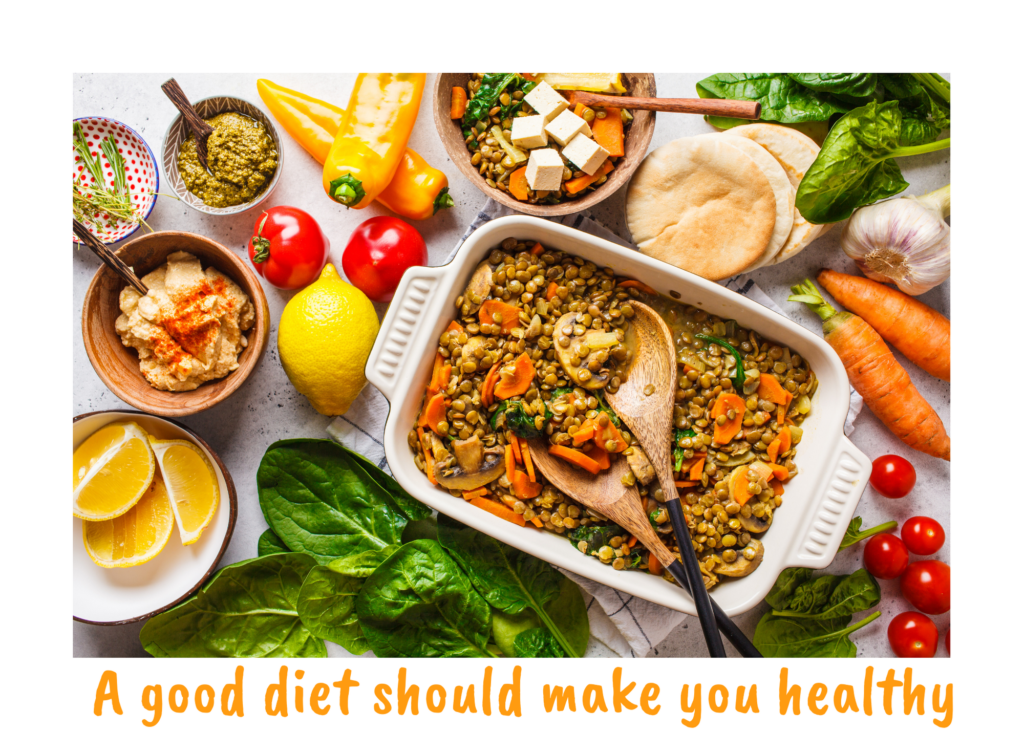As a Nutritionist, I get asked this question several times a day.
People are shocked when I tell them it’s not a low-carb diet, and they don’t even need to keep counting calories.
Let me explain. Weight loss isn’t a short-term goal. It’s very easy to lose weight, but the real work is making the weight loss last. Many people are able to quickly lose weight, but most find that they gain most of the weight back within a year. So here’s the first part of my answer: A low-carb diet may make you lose weight in the short term, but it’s not healthy because it’s not sustainable in the long term and it restricts many nutritious foods.
The second part of my answer: Weight loss isn’t just about calorie deficit – not if you want your weight loss to last. This is the most common weight loss mistake.
If you just want temporary weight loss for a few weeks and months then you could get away with counting calories and being in calorie deficit but if you’re like most people, then you will gain all the weight back again within months.
In order to maintain your weight loss, you must change your lifestyle.
What, then, is the best “Weight Loss” diet?
The best weight loss diet is all of the following:-
- One that makes you healthy first.
- One that lowers your risk for heart disease, cancer, and diabetes (the biggest killers of modern society) and provides nutrients to support all your organs and hormones.
- One that’s actually not a diet at all, rather a lifestyle change based on education and support.
- Weight loss happens naturally.

If you focus on getting healthy, the weight loss will happen automatically. Without you having to deprive yourself or constantly counting calories.
This is the simplest and healthiest diet in the world – the Whole foods, Plant-based diet. Nothing fancy. Nothing complicated. And yet it’s the diet that can majorly cut your risk of serious diseases such as Heart disease, Diabetes, and Cancer, as well as Fatty liver, Kidney disease, hormonal imbalances etc.
What’s allowed?
Unrefined, unprocessed whole foods such as Fruits, Vegetables, Whole grains (brown rice, whole grain bread, steel-cut oats, quinoa), and Beans and legumes such as Kidney beans, black beans, etc and raw and unsalted nuts and seeds such as walnuts, almonds, pumpkin and sunflower seeds.
Dairy, fish and lean meat may be allowed in very small amounts, or avoided altogether. Many people start off by limiting and reducing the consumption of animal products, and when they see good results, go on to completely eliminate animal products from the diet.
What’s not allowed is equally simple. Refined grains (white rice, white bread) and processed foods containing sugar, refined flour and processed meat.
Sadly, it’s also the most underrated diet. You’ll find very few people talking about this simple but immensely effective diet. Part of the reason for that is that processed food manufacturers don’t stand to gain from it since the diet allows whole foods instead of packaged or processed foods. On the other hand, look at the plethora of Paleo, Keto etc ‘certified’ foods available in stores today and you’ll quickly realize why celebrities, influencers, and processed food manufacturers profit from promoting those diets.
Note, though – the Whole Foods based diet also advises some moderate physical exercise such as walking or yoga. Again nothing complicated but you can always do more 🙂

Meghna Ray Mondal is a Certified Holistic Nutritionist and founder of mykindofnutrition.com. Meghna thoroughly researches each blog post before putting it up and uses trusted references from scientific journals to back up every blog post.

